
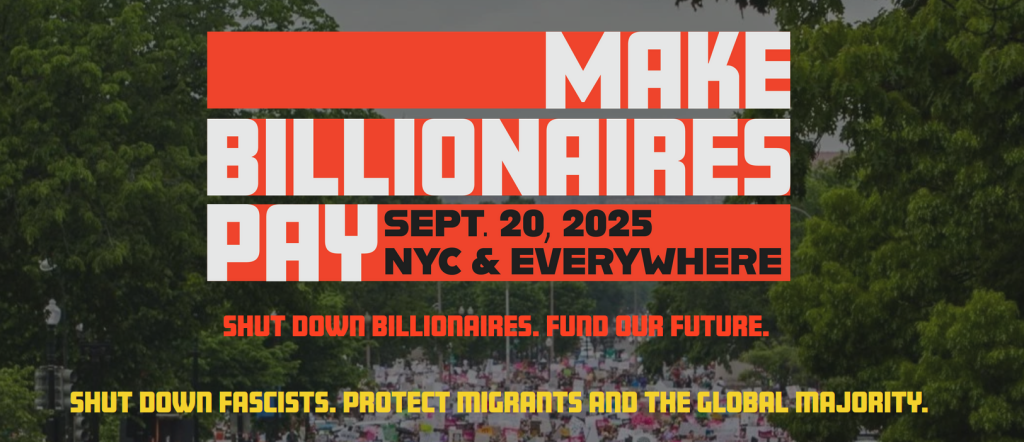
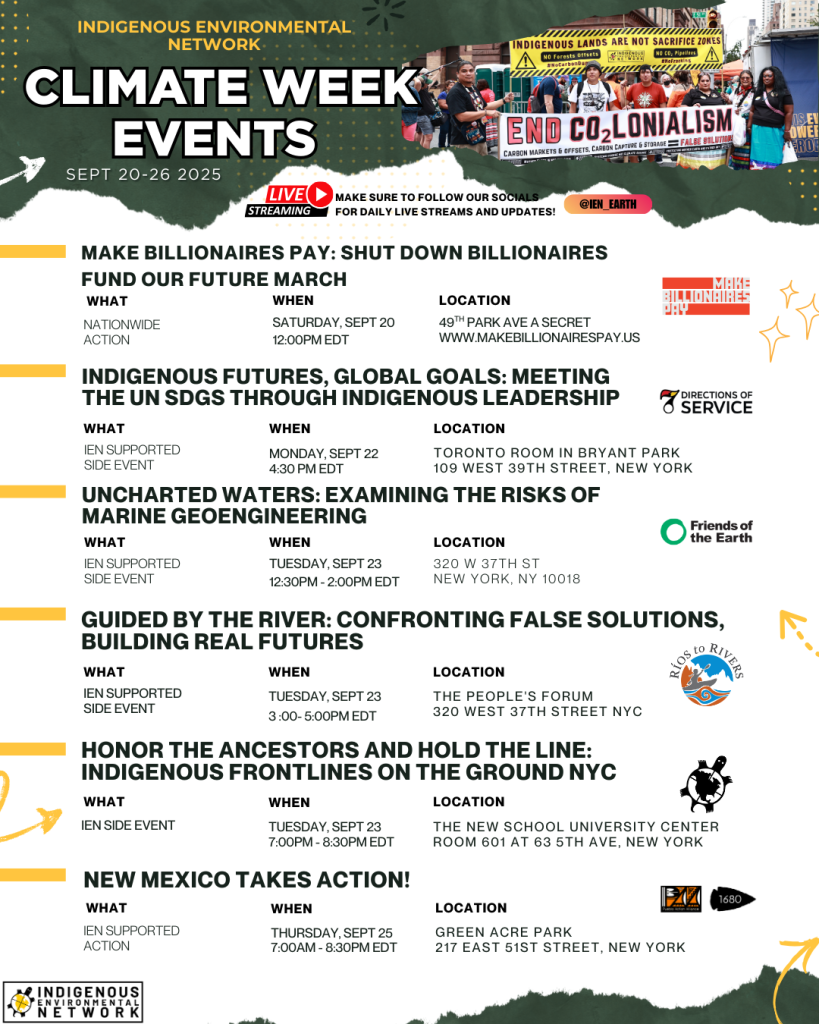
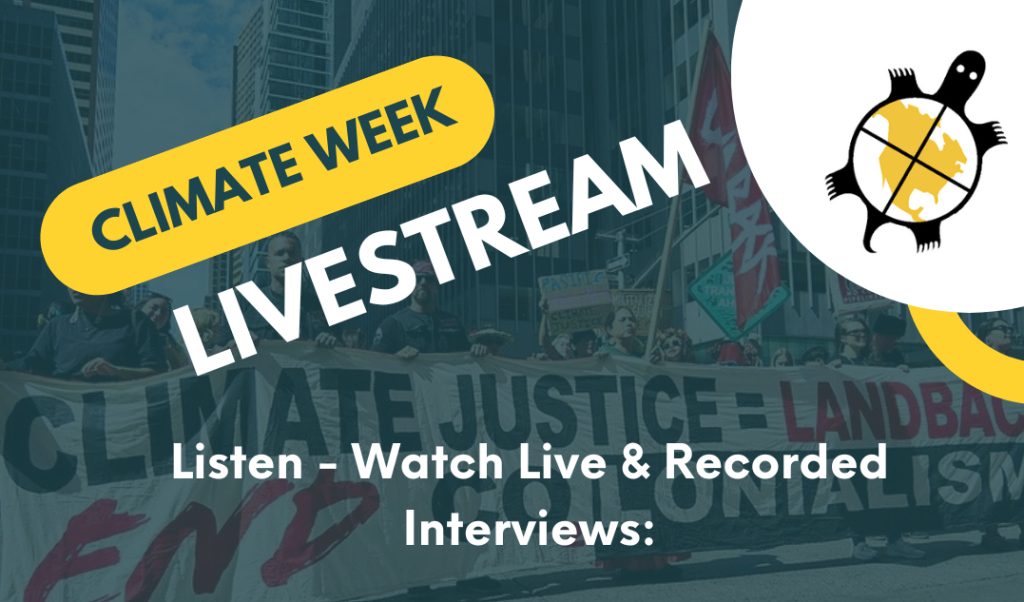
Overall goals:
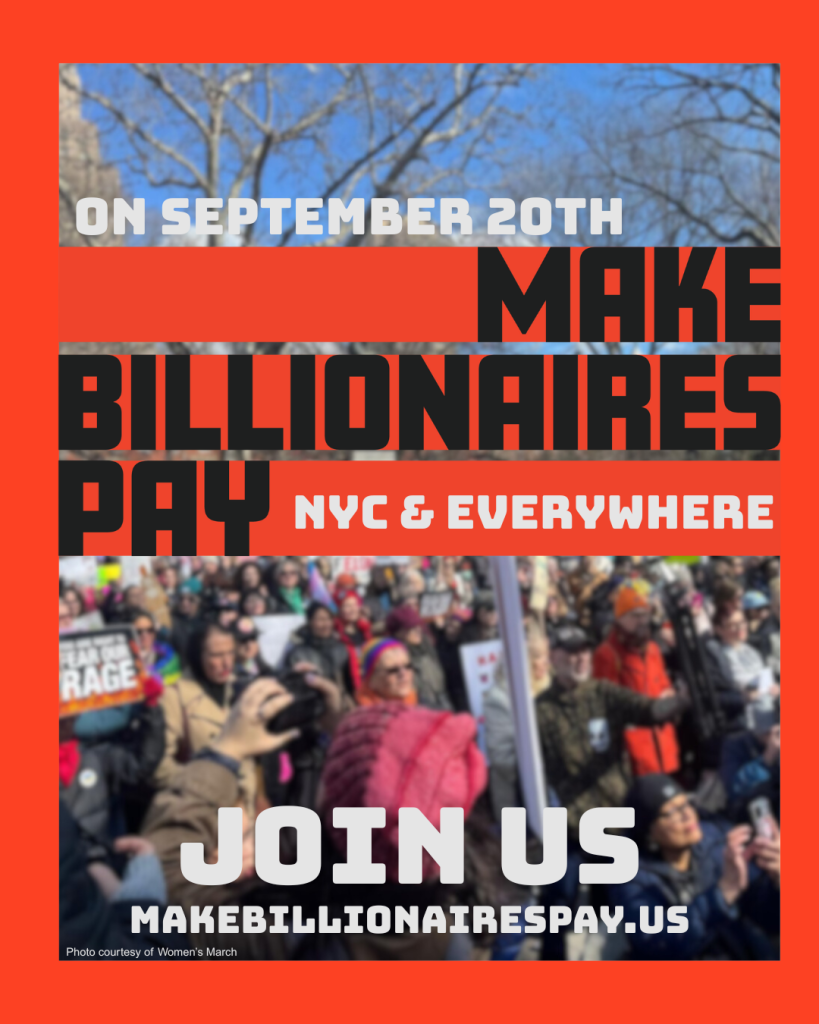
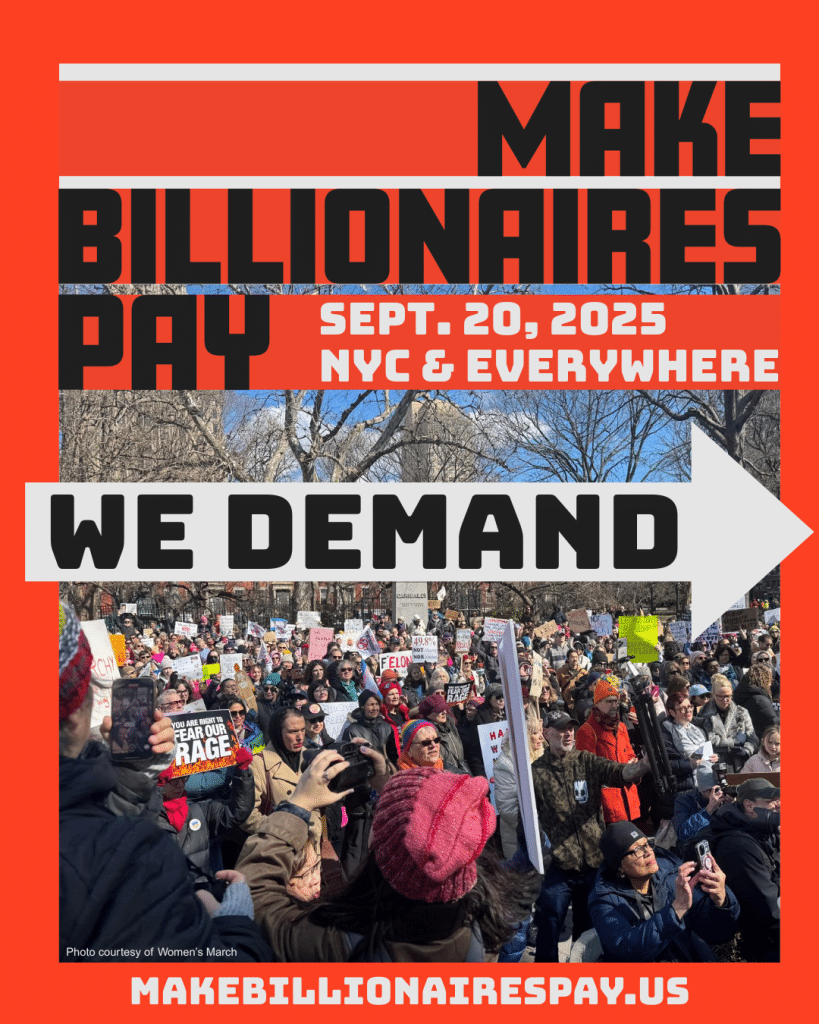
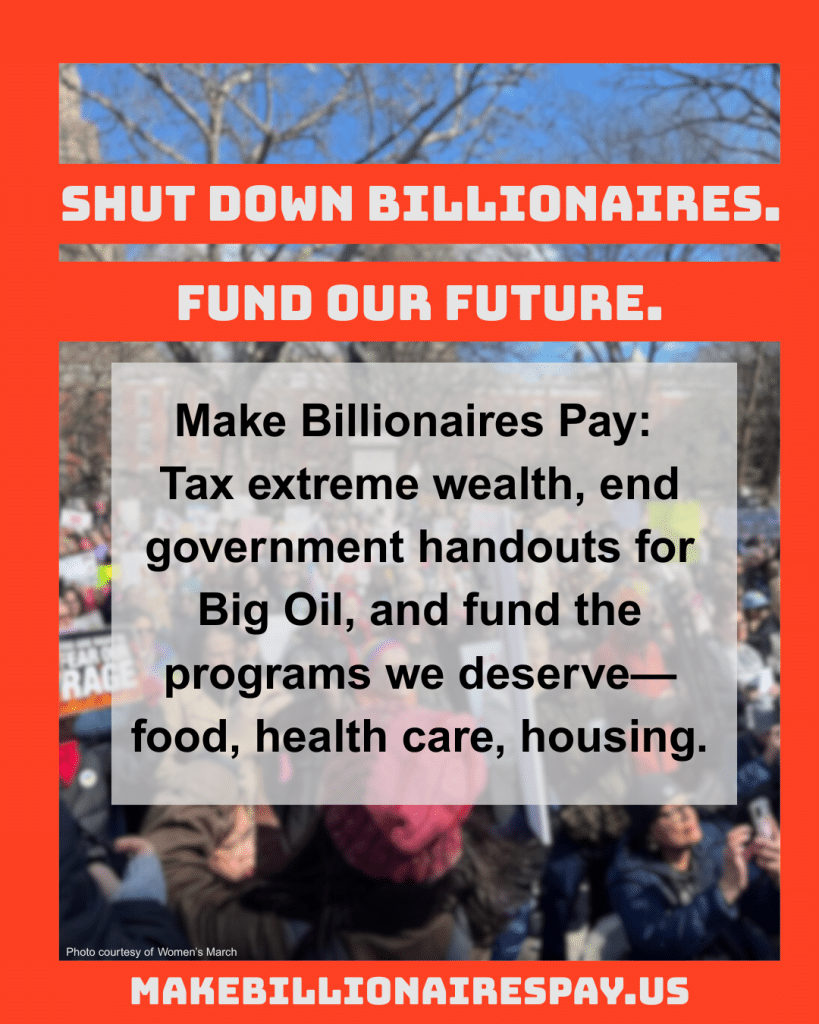
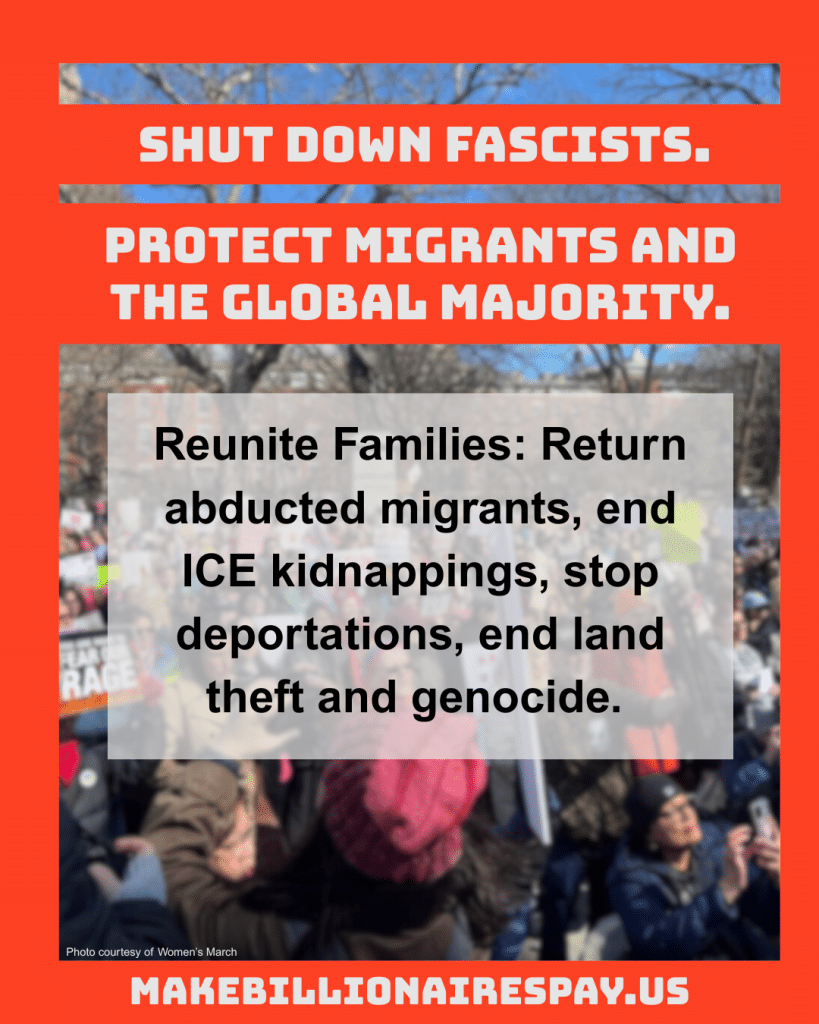
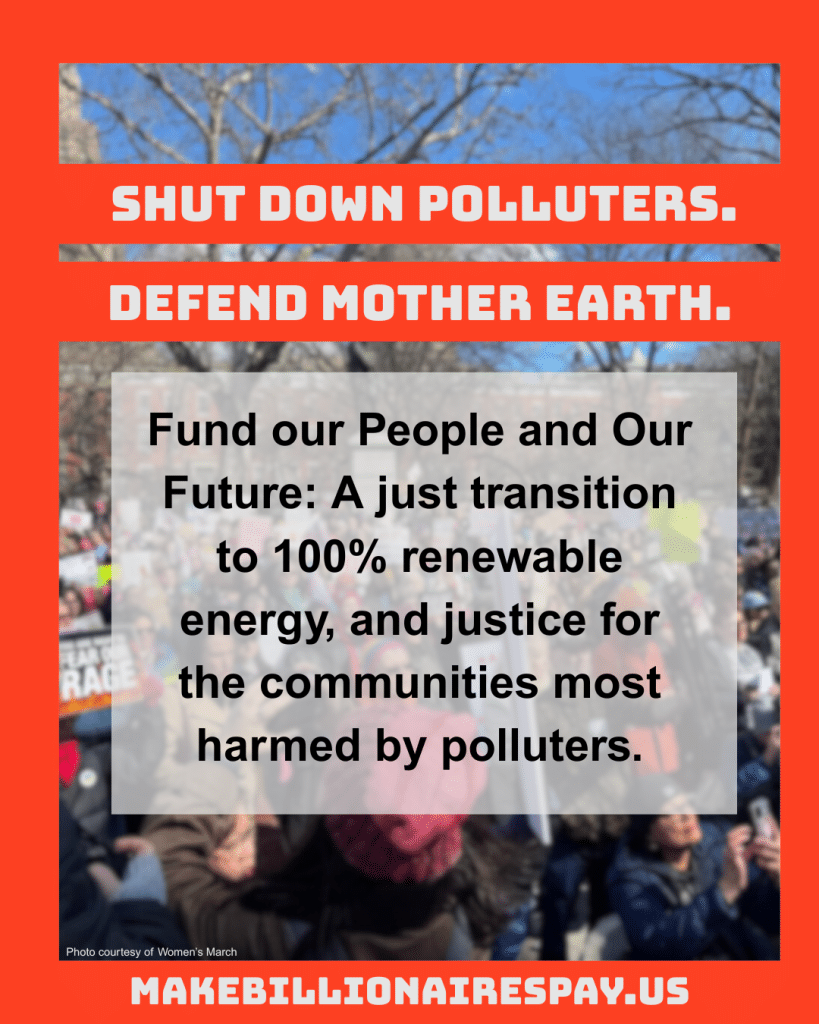
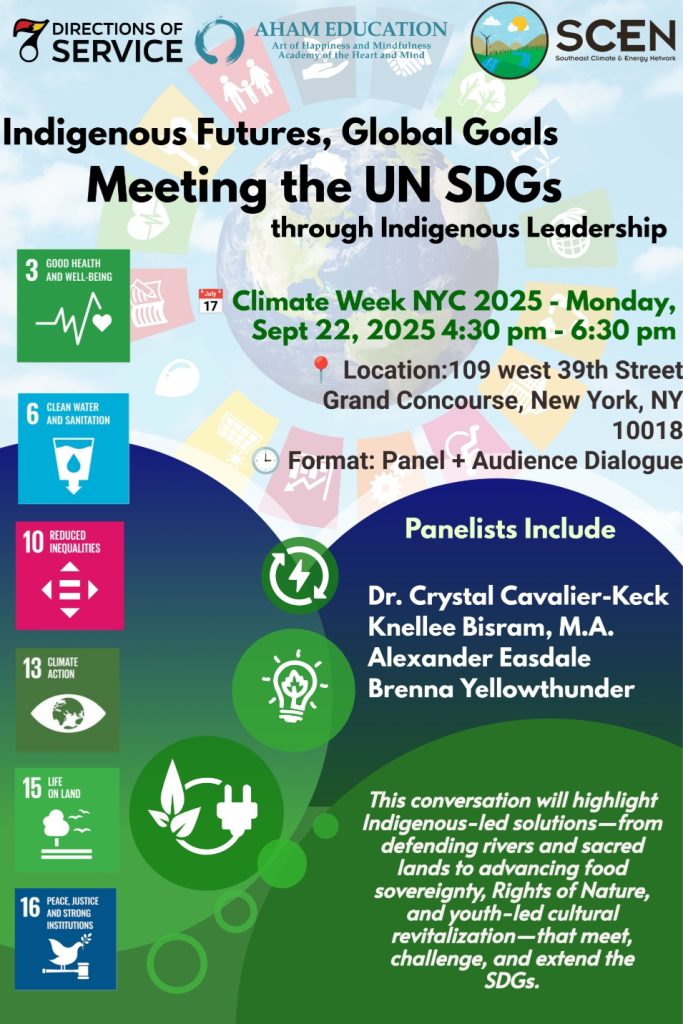
Date and time: Tuesday, September 23 · 3 – 5pm EDT
Location: The People’s Forum, Josina Muthemba Machel Classroom
320 West 37th Street New York, NY 10018
The roundtable creates space for Indigenous voices, knowledge, and leadership in shaping real climate solutions. Too often, conversations about climate action overlook or marginalize Indigenous peoples, despite our frontline role in protecting lands, waters, and communities. This event will amplify the perspectives of Indigenous leaders from across the country and beyond, while building stronger relationships among allies, movements, and networks.
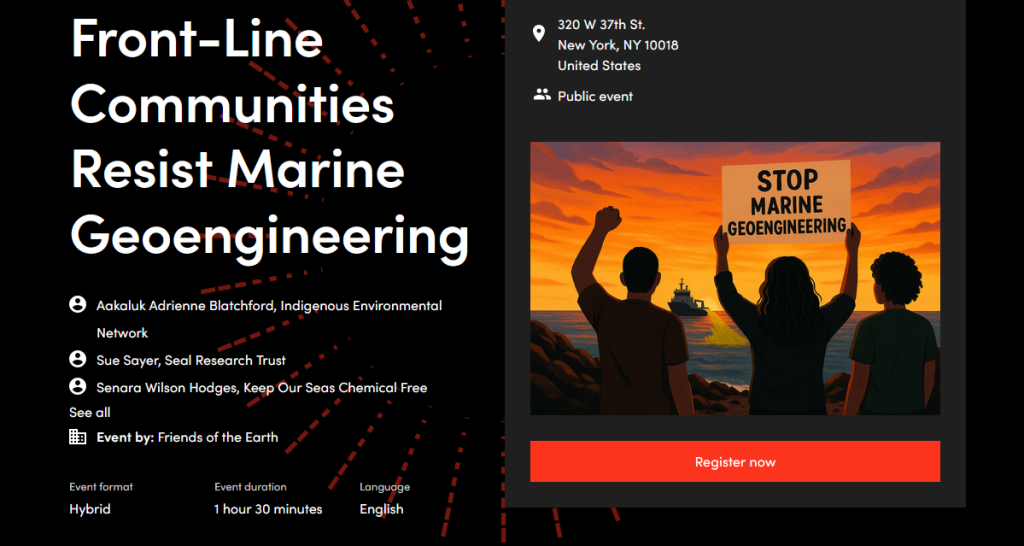
In recent years, proposals to manipulate the ocean to remove carbon dioxide – commonly referred to as marine carbon dioxide removal (marine CDR) or marine geoengineering – have proliferated. Often framed as necessary tools to meet global climate goals, these techniques remain scientifically uncertain, ecologically risky, and politically contentious. Yet pilot experiments are increasingly moving from the lab to the ocean, often targeting coastal or Arctic regions where communities have little say in how these projects are designed, tested, or approved.
This panel brings together grassroots organizers, Indigenous leaders, and environmental advocates to explore how frontline communities are resisting marine geoengineering in practice. Rather than treating ocean-based CDR as a neutral scientific endeavor, panelists will highlight how power, justice, and local sovereignty are central to debates about climate interventions. They will share firsthand accounts of organizing efforts that have challenged industry-led experiments, emphasized precaution over techno-fixes, and demanded accountability from governments and funders.
This event is aimed at climate activists, environmental justice advocates, funders, researchers, policymakers, and journalists attending Climate Week who are grappling with how to respond to emerging geoengineering agendas. It offers a vital opportunity to learn from the communities most directly affected – and most often ignored – in the rush to deploy speculative climate technologies.
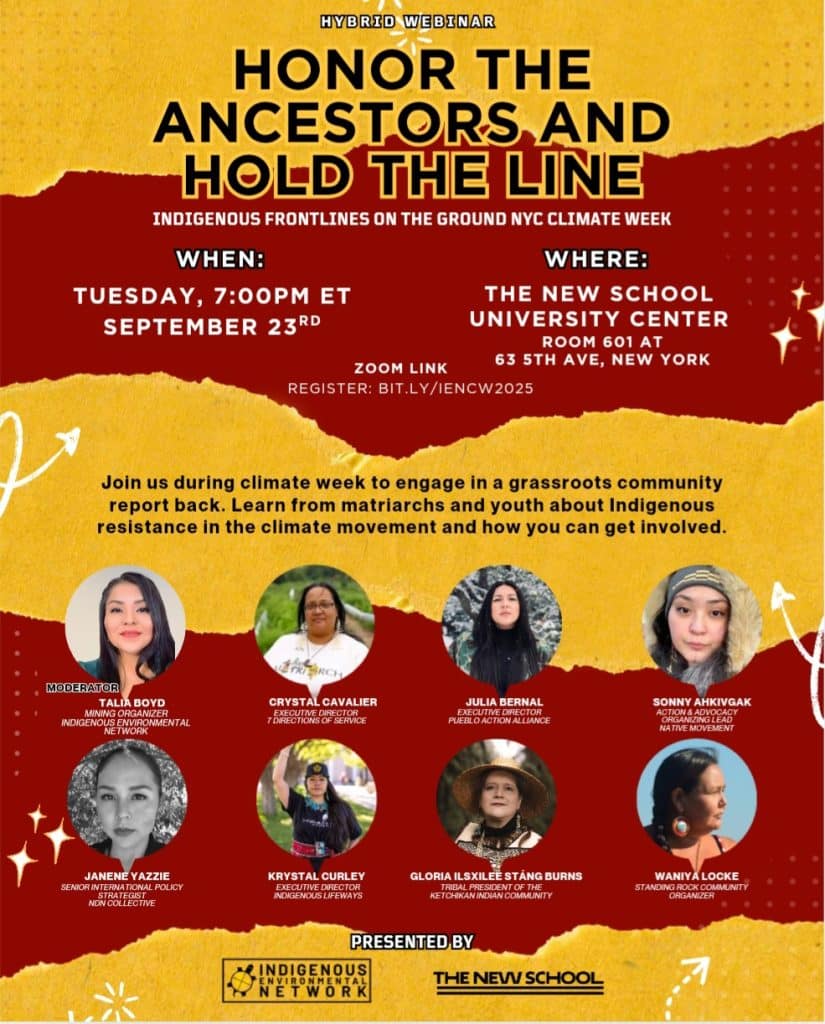
At the end of September, people will gather from around the world in Lenapehoking to address the climate crisis. As Indigenous Peoples, we’ll be there to protect Mother Earth and honor our ancestors. From repping our fights on the ground to holding Big Greens accountable to standing in solidarity with our brothers and sisters during this chaotic administration, it’s more important than ever for us to be there.
If you’ve ever asked why are we down there, or what does it even do? Now you can join IEN in this hybrid-virtual community report back to hear from Indigenous Matriarchs and youth about what is happening on the ground. Join IEN at The New School, University Center (Rm. 601) on Tuesday night, Sept. 23 at 7pm to hear what Indigenous leaders are doing.
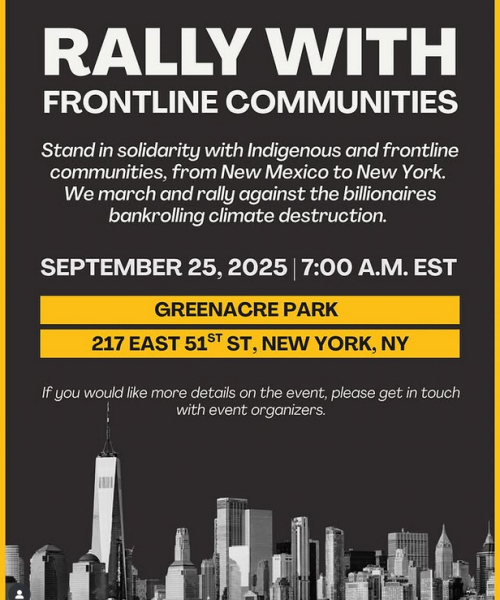
Join us in New York City on Thursday, September 25 as the New Mexico No False Solutions Coalition joins frontline communities from across the country to call out the billionaires and financiers driving climate collapse.
We will gather at Greenacre Park, 217 East 51st Street, at 7:00 a.m. EST to confront the corporations and investors who poison our lands and gamble with our future while hiding behind greenwashed promises.
In New Mexico we know their playbook. Wall Street giant Blackstone is moving to seize PNM, our public utility, to turn our energy system into a private profit machine.
Oil and gas corporations continue to foul our air and drain our water, while private equity firms push carbon markets, hydrogen schemes, and other so-called “solutions” that let them keep drilling, mining, and burning while claiming climate leadership.
No carbon trading, no hydrogen boondoggles, no private-equity takeover of the power that belongs to the people. We’re coming to New York to make it plain: the billionaires who built this crisis will not buy their way out of it.…